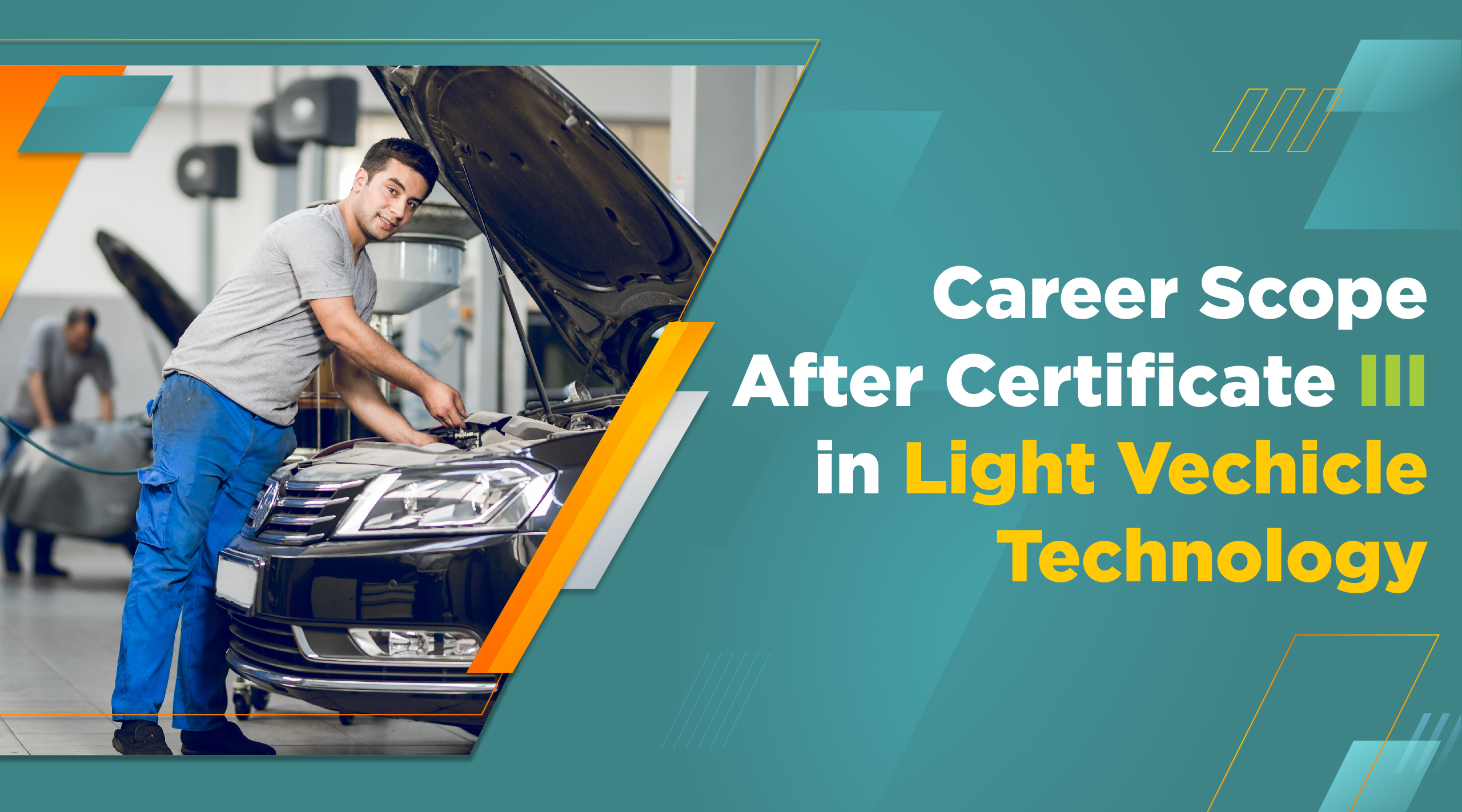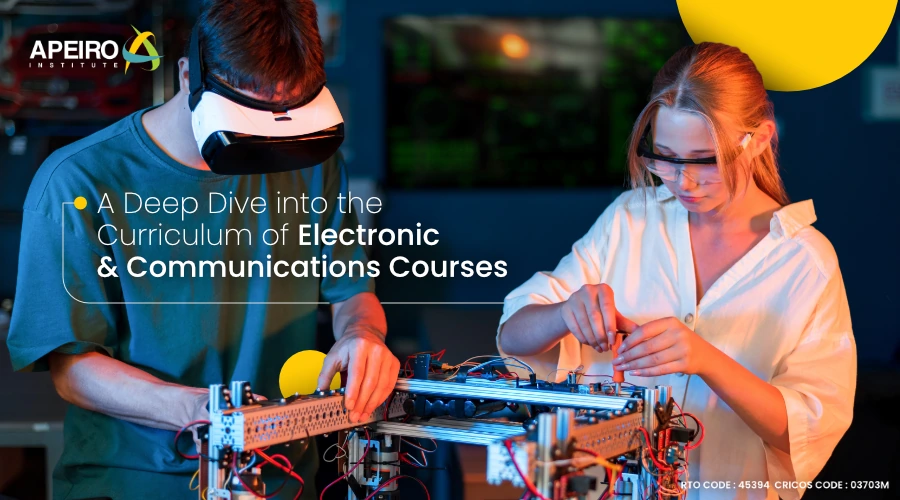A light-wheel mechanic inspects, maintains, and repairs the mechanical parts of different compact vehicles, such as automobiles and vans. Their major task, as the name implies, is to undertake repair and maintenance operations on light-wheeled vehicles and other objects. They do, however, occasionally assist in the maintenance of big vehicles.
Diagnostics and troubleshooting vehicle automotive systems, providing maintenance on interior vehicle components like the engine, changing light-wheel vehicle parts, preparing autos for service, detailing, and inspecting car components for flaws are some of their responsibilities. Although no formal schooling is necessary, a high school certificate or GED is advantageous for the occupation. Most businesses give on-the-job training, although prior expertise in car repair is required.
How to Become a Light-Wheel Mechanic
If you want to work in Australia’s automotive industry, enrol in the Certificate III in Light Vehicle Mechanical Technology programme at Apeiro Institute. This course is open to those who want to pursue a fulfilling career as an automotive light vehicle technician.
As a student, our knowledgeable instructors will teach you a variety of skills on a variety of light vehicles. Australian automobile repair, service, and retail are examples of sectors in Australia.
What Will I Learn?
We have a staff of highly experienced trainers that have previously held high-ranking positions in the Australian automotive industry. So, after completing this course, you will be armed with the following abilities and information.
● Inspect and repair warning systems, including instruments.
● Repairing and testing fundamental repair circuits
● Diagnose and then fix the spark ignition engine management systems.
● Repair and inspect the ignition systems.
● Inspect and repair the different starting systems.
● Carry out the different service operations
● Inspect and repair light vehicle hydraulic braking systems.
Employment Opportunities
Working as a mechanic is a rewarding and diverse profession. Mechanic positions are often accessible throughout the country, including rural and urban locations. A job as a motor mechanic might lead you to do something you enjoy and work with automobiles that excite you. Mechanic employment has increased significantly in the last five years, as well as marginally in the last ten. Employment is most prevalent among individuals aged 25 to 34, accounting for around 25% of all workers in this age range. Most individuals who work in the mechanic and automotive industries have a Certificate III or Certificate IV. This is the highest qualification held by 70.7% of those in this occupation, compared to a year 12 qualification held by 10.6%.
Your career will flourish if you complete this course successfully. It allows you to hone your talents in the Australian light car automotive business. After completing this course, you will be eligible for the following career opportunities.
● Automotive Light Vehicle Mechanical Repair Technician: A light vehicle mechanical repair technician is primarily responsible for diagnosing, maintaining, and repairing the mechanical components of small trucks, vans, and vehicles.
● Motor Mechanic (General): A Motor Mechanic (General) maintains, fixes, and tests the mechanical components of lightweight motor vehicles, as well as gasoline engines.
● Workshop Foreman or Manager: A Workshop Foreman oversees the day-to-day operations of an automobile shop. This includes hiring and training new employees, supervising maintenance services, and assisting the owner or general manager in ordering components and maintaining an adequate inventory supply.
● Specialist in advanced diagnostics: A specialist does routine maintenance and evaluates automobiles using diagnostic instruments. Their responsibilities include inspecting each vehicle and offering maintenance services, such as fixing a car’s brakes, hydraulics, gasoline ignition, air conditioning, and electrical system.
How to start a career in Light Vehicle Technology?
So, do you want to start your automotive career in Australia? Then Apeiro Institute can provide you with the best academic experience. You may get the job you’ve always wanted by taking the Auto mechanic certificate III course. We differentiate ourselves from other Australian colleges and universities primarily because of the following criteria.
● Student-centred learning: All of our automotive courses have been created with our students’ individual learning needs in mind. We want all of our students to achieve the finest skills and knowledge possible based on their specific learning capacities.
● Career-oriented courses: We provide you with the chance to develop your automotive horizons, leading to a successful career. It is made feasible since we have a specialised staff of trainers who meticulously teach these courses. This not only guarantees you a future career, but it also improves your abilities and confidence.
● Cost-effective courses: We charge our students the most competitive prices for taking the course. At Apeiro Institute, we strive to deliver the greatest education possible at a reasonable cost.
Why enrol anywhere else when you can study in Perth with us at Apeiro Institute? Hurry! Contact us immediately to enrol in our classes as soon as possible!






